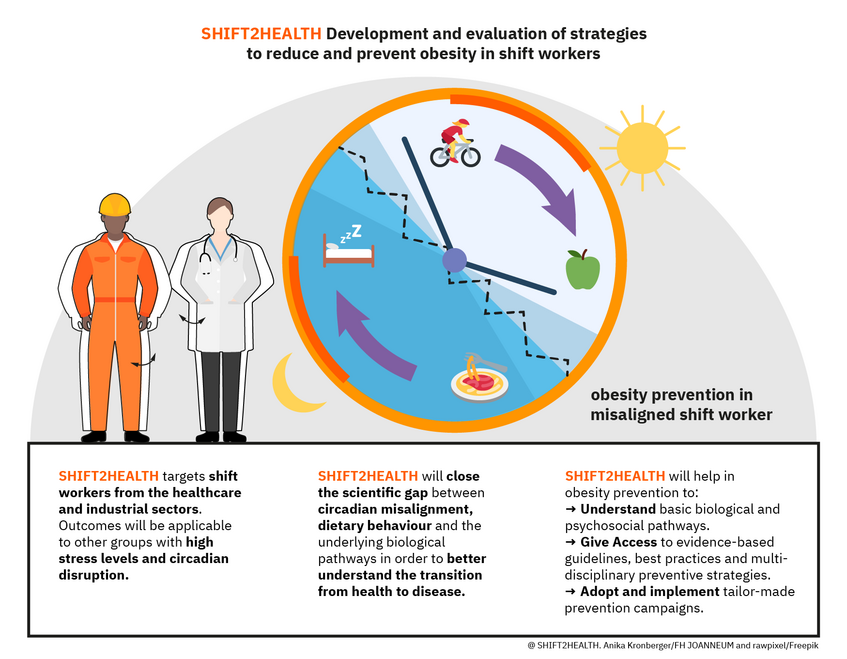What is SHIFT2HEALTH?
SHIFT2HEALTH funded under the EU HEALTH call “HORIZON-HLTH-2022-STAYHLTH-01-05: Prevention of Obesity Through the Life Course” is a collaborative effort of 14 European Partners (the consortium is composed of 10 universities, 1 technology transfer centre, 1 research centre, 1 European Network and 1 company) in 7 European countries to gain new insights into behavioural and physiological underpinnings that make shift workers overweight and obese.
This project uses a multidisciplinary approach and aims to identify mechanisms and environmental and lifestyle factors leading to obesity in shift workers and to develop and evaluate products and strategies with consideration of the behavioural and relational level to support healthy eating patterns.
The project is building on eight interlinked work packages (WP) and will focus on both healthcare (female dominated) and industrial workers (male dominated), two major sectors where working in shifts is common. It will combine existing and new knowledge on nutritional, behavioural, perceptual and physiological determinants of (un)healthy food choices in a cross-section trial and consider personal needs and wishes. Based on the latter results, promising strategies, technical solutions and products will be developed and tested within the target group in specific interventions.
During all steps, stakeholders (health work organisations, shift workers` representatives, companies, policy makers and scientists) will be involved.

